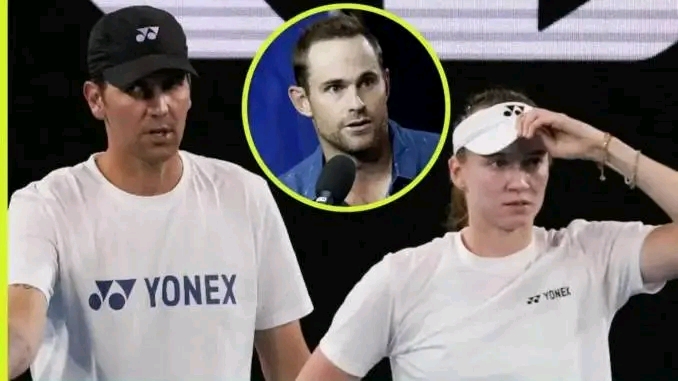NFL
Andy Roddick lambasts Elena Rybakina’s ‘selfish, circus show’ coach Stefano Vukov

Andy Roddick lambasts Elena Rybakina’s ‘selfish, circus show’ coach Stefano Vukov after ban
Leave a Comment / Tennis / By Admin 3
The world of professional tennis is often a stage for high drama, both on and off the court. Recently, a controversy erupted involving Elena Rybakina’s coach, Stefano Vukov, and former tennis star Andy Roddick, igniting a debate about coaching conduct and the boundaries of acceptable behavior. Roddick’s pointed criticism of Vukov, labeling his actions as “selfish” and a “circus show,” has brought to the forefront the often-unseen dynamics between players and their coaches, and the impact those relationships can have on the sport. This incident has sparked a wider conversation about professionalism, respect, and the appropriate role of a coach in shaping an athlete’s career.
Rybakina, a rising star in women’s tennis, has achieved considerable success, including a Grand Slam title. However, her journey hasn’t been without its share of scrutiny, particularly concerning the behavior of her coach. Roddick, known for his outspoken commentary on tennis, has been particularly critical of Vukov, alleging that his actions have been detrimental to Rybakina’s performance and image. Roddick’s strong words have drawn attention to the often-unspoken code of conduct expected of coaches, and the potential consequences when those standards are perceived to be violated.
Roddick’s critique of Vukov goes beyond mere disagreement with coaching strategies. He accuses Vukov of creating a “circus show” atmosphere, suggesting that his behavior is more about self-promotion than the well-being of his player. This accusation raises questions about the motivations of some coaches and whether their focus is truly on the athlete’s best interests or if other factors are at play. Roddick’s use of the term “selfish” implies that Vukov’s actions are driven by personal gain, potentially at the expense of Rybakina’s development and reputation.
The controversy surrounding Vukov also highlights the delicate balance between a coach’s role as a mentor and their responsibility to maintain professional boundaries. Coaches play a crucial role in shaping an athlete’s career, providing not only technical instruction but also emotional support and guidance. However, there is a line that should not be crossed, a point where a coach’s behavior becomes detrimental to the athlete’s well-being. Roddick’s criticism suggests that, in his view, Vukov has crossed that line, creating a toxic environment that is not conducive to Rybakina’s success.
It is important to note that Roddick’s comments are his own perspective, and others may have a different view of the situation. However, his strong words have undoubtedly resonated with many in the tennis community, prompting a broader discussion about coaching ethics and the importance of maintaining professionalism. The incident serves as a reminder that coaches have a significant influence on their players, and their behavior can have a profound impact on an athlete’s career.